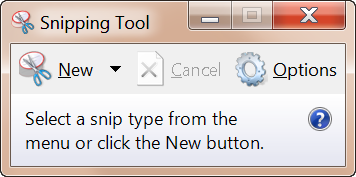

In the meantime, it's just there and it's free. If you think you have found a bug, feel free to open an issue, but honestly I don't intend this project to ever be bug-free or feature-complete because I know I won't have time to support it in a professional way.Īnd if you miss a feature, there's even less chance I will have time to look into it. If you test it on other platforms, feel free to open an issue and tell me about your experience. However, early user feedback on Ubuntu indicates that the Desktop widget has visual issues but that captures are OK and can be copied, saved and shared online, which I find amazing since it never was launched under Linux before release. In other words, until now, Ginj has almost exclusively been tested on Windows. Moreover, I don't own a Mac, and I don't intend to test Ginj on a Linux VM until my to-do list becomes manageable. Ginj targets OpenJDK 14, so obviously Ginj won't ever run on a platform that does not support that JDK version. Ginj's core is pure Java, and Java is "write once, run anywhere", so yes, it runs on any platform. However, basic still image capture, annotation and sharing works quite well already. The goal is to cover the features of the original Jing, and maybe bring minimal enhancements, but many of them are still missing. Maybe that went a little bit overboard :-). Because I was looking for a challenge during the Covid-19 lockdown.Because no other tool on the market satisfied me.Because I was a very satisfied user of Jing and I was sad to see it go.

A few new features could be added, but I really want to stick to the simple UI I love.Take it, use it, keep it, fork it, improve it, change it. Ginj supports Dropbox, Google Drive and Google Photos for now. Since, Techsmith's online sharing platform, does not have a public API, I had to switch to other online sharing services.Of course, not a single line of code, not a single icon or font was taken from Jing. Looks familiar ? What's the difference with Jing? But although there are similarities in the way both tools behave, Ginj is not Jing. Ginj might remind you of a free tool called Jing, that Techsmith discontinued in July 2020 (*).

Its unobtrusive user interface and no-nonsense "capture / annotate / share" workflow is hard to beat. Ginj is an open source multi-platform screen capture and recording tool.


 0 kommentar(er)
0 kommentar(er)
